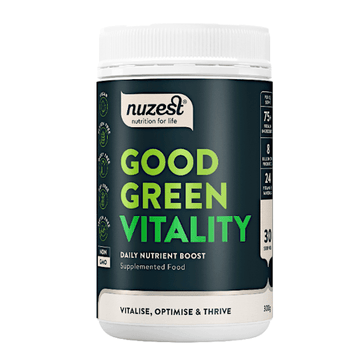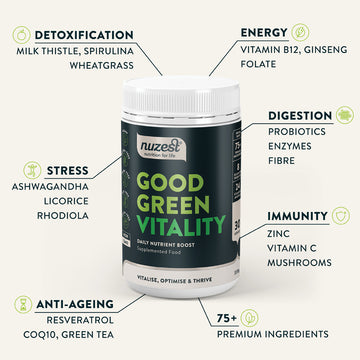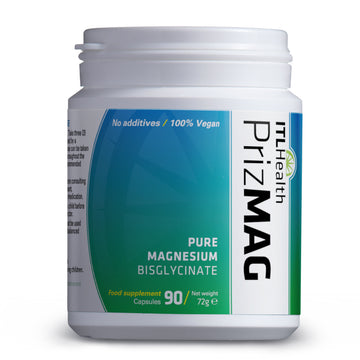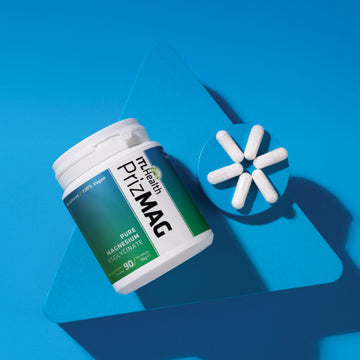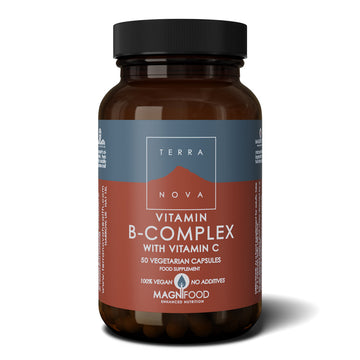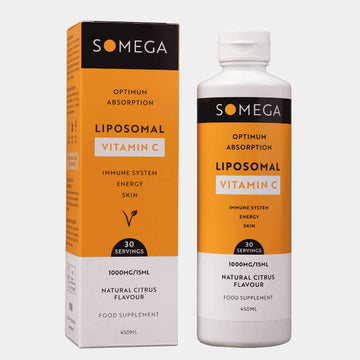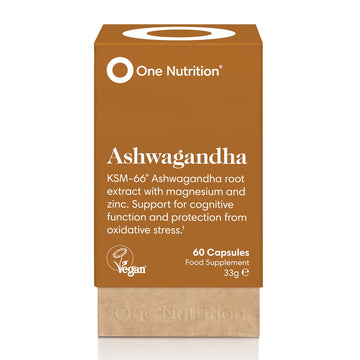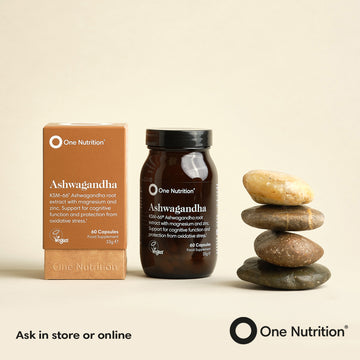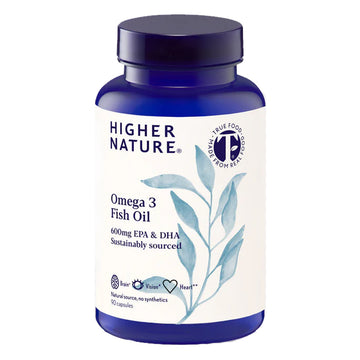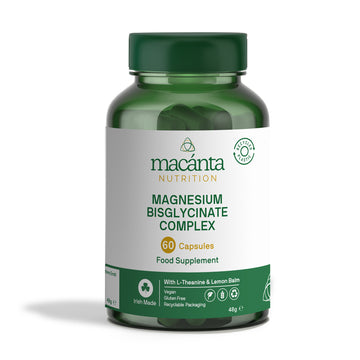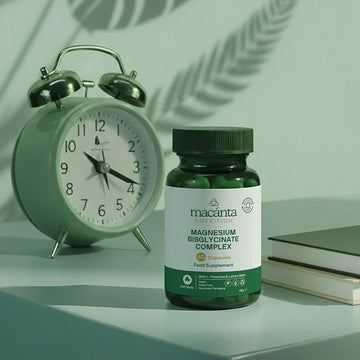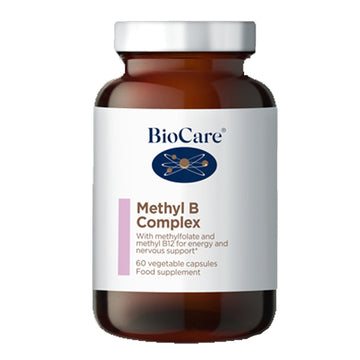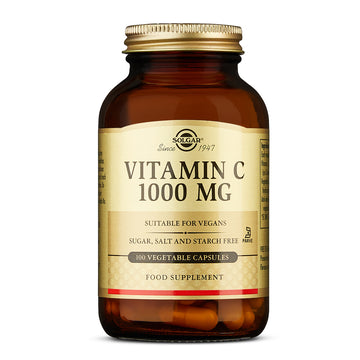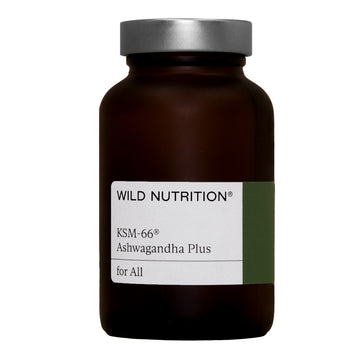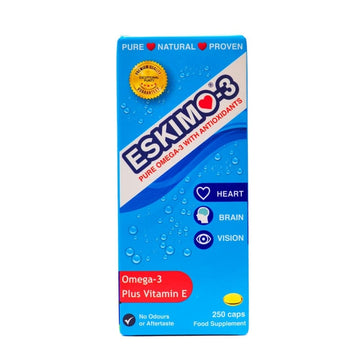10 Top Tips and 5 Top Nutrients to Help
In today's fast-paced world, stress has become an almost inevitable part of daily life. Whether it's due to work, personal issues, or external factors, managing stress effectively is crucial for maintaining both physical and mental well-being. This guide provides ten practical tips to help you recognise, address, and alleviate stress, as well as five essential nutrients that can support your body in coping with it. By implementing these strategies and nutritional recommendations, you can improve your resilience to stress and enhance your overall quality of life.
10 tips to help you best deal with stress
-
Recognise when stress is a problem
The recognition of problematic stress may be harder than you think – involving self-awareness and the ability to identify signs such as changes in mood, behaviour, or physical health.
-
Make changes where you can
Once stress is identified, taking proactive steps to make positive changes in your life can help alleviate its impact.
-
Build supportive relationships
Cultivating strong connections with friends, family, or support groups provides an emotional safety net. Sharing experiences, seeking advice, and receiving encouragement from others can significantly contribute to the way stress is managed.
-
Eat healthily
A well-balanced and nutritious diet is essential for both physical and mental wellbeing. Certain foods, such as those rich in omega-3 fatty acids and antioxidants, can positively influence mood and stress levels.
-
Reduce your alcohol intake/quit smoking
Alcohol and smoking can exacerbate stress and have detrimental effects on physical and mental health. Reducing or eliminating these habits can contribute to overall wellbeing and improve the body's ability to cope with stress.
-
Engage in physical exercise
Regular physical activity can be a powerful stress reliever, as it helps release endorphins, but also reduce tension - improving overall mood and supporting stress management. Incorporating exercise into your routine can in fact have long-lasting benefits for stress management.
-
Take time out
Taking breaks and setting aside time for leisure activities are both crucial for maintaining a healthy work-life balance. Engaging in hobbies or activities you enjoy can provide a mental break and contribute to stress reduction as well.
-
Be mindful
Practising mindfulness involves staying present in the moment and cultivating an awareness of thoughts and feelings without judgment. Mindfulness techniques, such as meditation and deep breathing, can be effective tools for stress management.
-
Get restful sleep
Quality sleep is essential for physical and mental health. Establishing a consistent sleep routine, with good sleep hygiene like creating a comfortable sleep environment and minimising blue light exposure, while managing stress before bedtime can all contribute to restful sleep.
-
Be kind to yourself
Self-compassion is crucial when dealing with stress. Recognising and accepting imperfections, setting realistic expectations, and practising self-care all contribute to a positive mindset and better stress management.
Top 5 nutrients to help your body cope with stress
While magnesium nourishes our central nervous system, supporting our body’s stress response, stress itself depletes magnesium via a series of physiological processes. This vicious circle concept commonly referred to as the “magnesium and stress cycle” represents the need for extra magnesium in our diets and for many of us by supplementation as well. While food sources of magnesium include whole grains and dark, leafy greens, as well as pumpkin seeds, fatty fish and the ever-popular, dark chocolate. Nuzest’s Good Green Vitality can provide a boost as well, containing 100mg of magnesium per serving!
Research shows that B vitamins can significantly benefit mood and reduce our body’s physiological response to stress. While you’ll find B vitamins in foods such as peas, nuts, leafy greens, wholegrains and liver, a convenient way to ensure a comprehensive and potent supply of these vitamins for optimal health is through a daily dose of Good Green Vitality!
Vitamin C deficiency is widely associated with stress-related disorders, with studies showing inadequate vitamin C status is related to a low level of mental vitality and treatment with vitamin C appears to restore the stress. Did you know that Nuzest’s Good Green Vitality contains 400mg of Vitamin C per serving? Vitamin C can also be found in whole foods such as citrus, strawberries, tomatoes, cruciferous vegetables like broccoli, cauliflower and Brussels sprouts, as well as kiwi.
Studies have shown that the adaptogenic herb Ashwagandha, found in Nuzest’s Good Green Vitality formulation, is associated with stress-lowering effects. The HPA axis activity, or stress response of the study participants was shown to become less reactive to stressors after supplementation with a lower production of cortisol (‘stress hormone’) as well.
Foods that are high in omega-3 fatty acids include cold-water fatty fish like salmon, mackerel, tuna, herring and sardines, as well as nuts and seeds like chia, walnuts, flaxseeds and oils such as cod liver oil, flaxseed, fish and krill oil. Studies have shown that a diet high in omega 3 fatty acids may reduce perceived stress and improve mental wellbeing, while just 1 daily serve of Good Green Vitality can help in achieving significantly higher levels of essential fatty acids due to the flaxseed, spirulina, red marine algae, kelp and alpha-lipoic acid content.
Dealing with stress is a multifaceted challenge that requires a combination of self-awareness, lifestyle changes, and nutritional support. Embrace these tips and nutritional strategies to cultivate a balanced, stress-resilient life.



